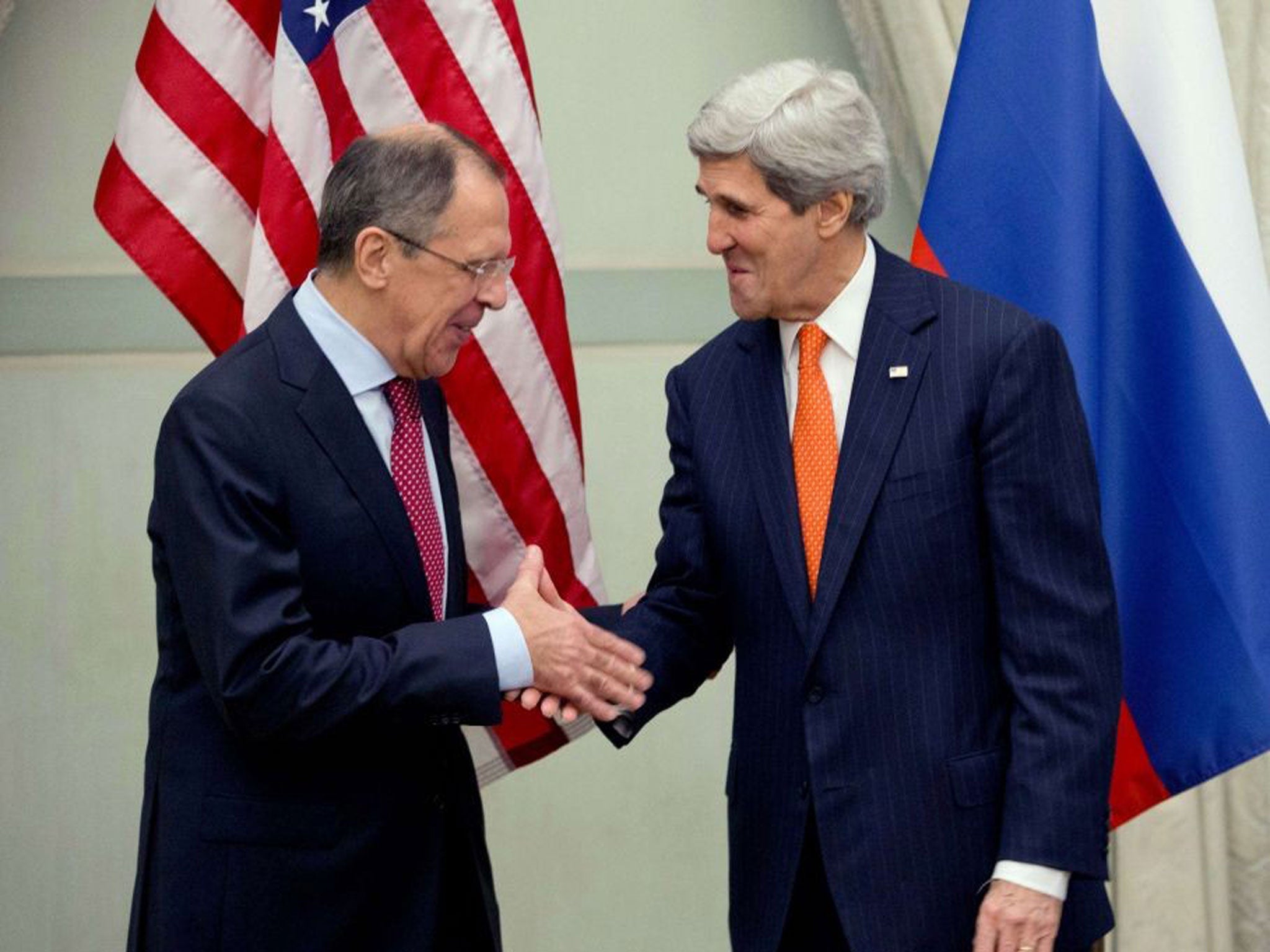US and Russia say negotiations close to ceasefire and aid convoy access in Syria
John Kerry and Sergei Lavrov met for talks in Paris this week ahead of a peace conference in Geneva

Your support helps us to tell the story
From reproductive rights to climate change to Big Tech, The Independent is on the ground when the story is developing. Whether it's investigating the financials of Elon Musk's pro-Trump PAC or producing our latest documentary, 'The A Word', which shines a light on the American women fighting for reproductive rights, we know how important it is to parse out the facts from the messaging.
At such a critical moment in US history, we need reporters on the ground. Your donation allows us to keep sending journalists to speak to both sides of the story.
The Independent is trusted by Americans across the entire political spectrum. And unlike many other quality news outlets, we choose not to lock Americans out of our reporting and analysis with paywalls. We believe quality journalism should be available to everyone, paid for by those who can afford it.
Your support makes all the difference.The US and Russia said they are negotiating the possibility of a ceasefire in the conflict in Syria, and indicated that the regime of Bashar al-Assad is willing to allow access for humanitarian aid to reach some besieged rebel areas.
US Secretary of State John Kerry and his Russian counterpart Sergei Lavrov held talks in Paris today, in which they also discussed the option of prisoner exchanges between the two sides engaged in the ongoing bloody civil war.
The meetings in Paris come as both sides work towards a peace conference in Geneva next week, which could see rebels and regime meet around the negotiating table for the first time.
“I'm pleased to say that Foreign Minister Lavrov indicated that he's had some conversations with the regime, that the regime may be prepared to open up a number of areas, specifically al-Gouta which we have been pushing for for some period of time, and it may be possible for convoys now to be able to access,” Mr Kerry said.
“The proof will be in the actions that may or may not be taken in the days ahead.”
Mr Kerry said a localised ceasefire in Aleppo had specifically been discussed, and that there was an ongoing push to get such measures in place ahead of the meeting in Geneva.
Mr Lavrov said: “We await similar steps by the opposition,” adding that there were concerns any ceasefire could simply be used to the advantage of the increasing number of disparate terrorist groups now operating in the country.
Mr Kerry acknowledged that ”terrorists greatly complicated this equation,“ but warned that ”If disorder is allowed to continue to grow, it is extremists who will benefit, and all the people who want peace and stability who will lose.“
Syria's government has nonetheless dismissed the Paris talks, saying in a statement they were ”closer to illusions than reality and taken by people who are detached from reality and extremely far from any acceptable political logic.“
Meanwhile, the UK Foreign Secretary William Hague said in a statement to the Commons today that Britain was ready to resume and possibly increase the non-lethal assistance it can offer to Syrian opposition groups.
Mr Hague said the British warship HMS Montrose will join Danish and Norwegian vessels to help escort Syrian chemical stocks that are set to be destroyed.
And with the UN estimating that 2.5 million people in Syria are not receiving the humanitarian assistance they need, Mr Hague he told MPs further British aid will be pledged.
“Countless numbers of people are being denied access to food and medicines and there are now sickening reports of innocent people dying from malnutrition,” he said.
Mr Hague said the UK will also press for the end of attacks in civilian areas and medical facilities and respect for international humanitarian law, among other issues.
Join our commenting forum
Join thought-provoking conversations, follow other Independent readers and see their replies
Comments